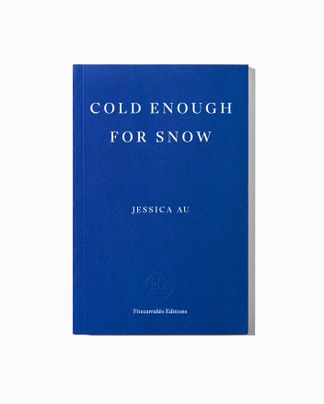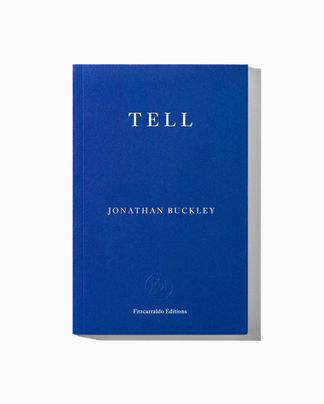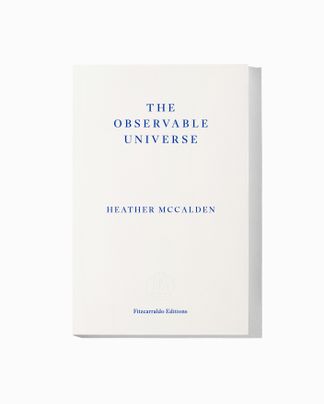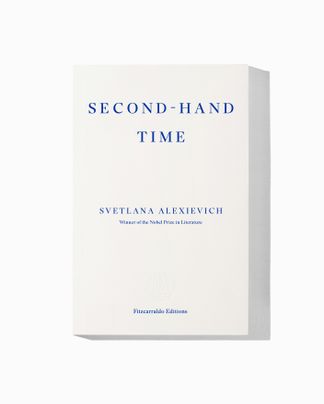How to speak of the searing, unpindownable power that the past – ours, our family’s, our culture’s – wields in the present? In five long sections, Maria Tumarkin’s Axiomatic tells true and intimate stories of a community dealing with the extended aftermath of a suicide, a grandmother’s quest to kidnap her grandson to keep him safe, one community lawyer’s battle inside and against the justice system, the effects of multigenerational trauma, and the history of the author’s longest friendship. In writing that is inventive, bold, and generous, Axiomatic is a brilliantly inventive exploration of how the past shapes our culture.
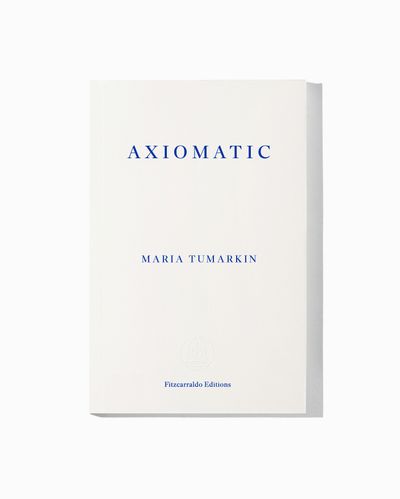
Axiomatic
French paperback with flaps, 224 pages
Published 1 November 2019
Axiomatic
TIME HEALS ALL WOUNDS
For five years everything Frances wrote was about her sister. Once she had been good at deadpan humour. Where’d that go, and the sarcasm? She was seventeen, Katie had been sixteen. Their mother used to deck them in matching clothes: denim dresses most often. People mistook them for twins.
In a Year 12 English assignment Frances wrote when I walked into her room that morning I could sense something was terribly wrong. She was positioned awkwardly, defying gravity.
A year later at uni kneeling forward on her knees, incredibly still. I thought she had fallen asleep, obliquely…
Part way through an end-of-semester piece the following year hair was falling over her face, shielding the truth. Her body was covered in prominent blue veins, gripping themselves over her youthful body.
After five years something shifted. Questions – why’d she call and ask me to wake her? why would she want me to find her? and the big one: did she mean it? – were no longer at Frances’s throat. Frances could imagine them turning into statements.
SHE WANTED ME TO FIND IT
SHE MEANT IT
Five more years and Frances doesn’t need to talk about it that much, maybe to some people, maybe once in a while. She knows what movies to avoid and with her sisters they don’t need to go over it. Maybe her father was wanting some family talk when he said ‘Cheers to Katie’ on the tenth anniversary and they all raised a glass? It’s possible. She’ll ask him.
I meet Frances as the shifting is beginning. Katie’s death doesn’t sit anymore on her chest at all times, making her work for every breath, its knees pressed into her ribs. I was so lost when you met me, she’ll tell me later, so confused, and young, bound up all the way with her. We meet and I ask Frances about casseroles. Everyone knows about casseroles. A person dies and people – close, dear people and virtual strangers, some signed up to a special roster – converge on the dead person’s house bearing casseroles. And the way the casseroles appear and just as suddenly disappear, weeks later, brings to mind, it is true, flocks of birds swooping down then taking off. Swish. For those weeks, sometimes – though not frequently – months, the family inside that house, whoever is there inside the house, is entombed in an intense concentration of throbbing, desperate human attention. Then it stops. Which is worse is hard to know although people I speak to before speaking to Frances – people who once found themselves on the receiving end of casseroles – seem to prefer the post-casserole. On a tram along Elizabeth Street we talk about the weeks after Katie’s death.
— What period? (she’s thrown by my accent; the tram is noisy)
— Casserole period.
— Oh, loved it. Wish it continued, went on much longer. I wish we had the casserole period now.
All those people in the house and no room left for flowers felt to Frances like the opposite of being scorchingly alone. ‘And then,’ she says, ‘the flowers died. And the people left. And there was nothing to fill the emptiness with.’
Frances’s Year 12 creative writing assignment, handed in twenty days after Katie’s suicide –
I will never forget the taste of her mouth. I can still taste her last breath.
Five hundred and fifty or so girls from prep to Year 12 is a small school. Ann taught there twenty-one years. She taught all four sisters. (There were four sisters once. ‘Four is special, three is ordinary,’ Frances says.) In a two-hour conversation Ann – composed, a teacher-teacher, tough, a mother of however many boys, retired now – gets visibly upset only once. Why can’t she claw back her tears when talk goes to that year’s creative writing assignments: the piece Frances wrote, and two pieces from other girls, one of them living in a psych unit, both in Frances’s class? ‘I suppose because I was privy to the truth. This is the stuff they don’t tell their parents. Or friends, shrinks. It’s stuff they only tell themselves.’
One of the things about coming to this world from the Eastern European elsewhere (not that it matters much which elsewhere the elsewhere is) is that words do not often feel powerful in the world of Australia we’ve come to. Which is fine really. We have made our peace with this, accepted it, with gratitude almost, because we judged the well-known (to us) alternative – a world in which poets and their families were persecuted and killed for their words mattering too much – to be an evil much greater. But perhaps I was wrong about this new world. Looking in all the wrong places perhaps. I wasn’t looking at girls and boys writing about what is innermost to them and what they have decided language cannot deal with and submitting their heartbeats as assignments, burying them among the mountains of straight, dashed-off bits of second-guessing fluff, this transaction bypassing the school economy of words-for-grades because what is being exchanged illicitly, covertly, are secrets and confidences and questions, and soul pain. And teachers carrying words by their students inside their chests – I was not looking at them. And no one else knows. Of course nobody knows. ‘You say to the Year 11 kids,’ says Ann, ‘if you have a special, special thing to write about save it till Year 12. Then when you write about a truth, it comes through. And they do save it, most of them.’
(…)
New Yorker Best Books of 2019 | New Statesman Books of the Year 2020
‘Nobody can write like Maria Tumarkin: she charges headlong into the worst and best of us, with an iron refusal to soften or decorate; sentences bare of artifice, stripped back to the bone, to the nerve; fired by raging grief and love.’
— Helen Garner
‘In taking injustice and the legacy of trauma – global, cultural, personal – as her subject, Maria Tumarkin’s writing embodies how form and content can osmose. The fragmentary narratives in Axiomatic resist cohesion, but the author’s extraordinary gift for language and story ultimately unites them. Axiomatic is an extraordinary enquiry into humanity, infused with empathy, from a hugely talented writer.’
— Sinéad Gleeson, author of Constellations
‘Maria Tumarkin’s shape-shifting Axiomatic deploys all the resources of narrative, reportage and essay. It is a work of great power and beauty.’
— Pankaj Mishra, author of The Age of Anger
‘[Axiomatic] is comprised of restless, gorgeous essays, each of which uses an aphorism – “time heals all wounds,” “you can’t enter the same river twice” – to reflect on Tumarkin’s preoccupations: trauma, the ongoingness of the past, and the unworkability of language. Tumarkin takes up subjects like youth suicide and the plight of homeless people in North Melbourne, but her approach is never maudlin.’
— Katy Waldman, New Yorker
‘The work of a virtuoso … Like Maggie Nelson’s, Tumarkin’s is the kind of writing that makes much creative nonfiction seem clumsy and rudimentary, as if everyone else is writing way too many words about smaller, pettier ideas.’
— The Believer
‘Tumarkin presents a remarkable tour de force … These essays will linger in readers’ minds for years after.’
— Publishers Weekly (Starred Review)
‘Everyone is looking for the next Helen Garner and Maria Tumarkin shares with Garner a gimlet eye for the flaws in official systems, along with a fascination for the narratives nested in everyday lives. Axiomatic’s symphonic structure, however, recalls Svetlana Alexievich, the Belarusian journalist and Nobel Laureate. She is another for whom reality attracts like a magnet, who has made a career out of appropriating and braiding voices and documents, seeing the world as a chorus and a collage. With this remarkable, wild, risk-laden book, Tumarkin has earned the right to be mentioned in the same breath as both of them.’
— The Saturday Paper
‘As a writer she pushes at the edges, and then pushes further; she wants to shout, and sometimes she does. Axiomatic is a bracing ride. At its heart is the big question of the past and its traumas. How do they play out? Where does trauma begin? In history? Genes? Family? Society? Is comfort to be found in the familiar truisms we’re so quick to roll out?’
— Inside Story
‘The reader’s equivalent of catching lightning in a bottle, Axiomatic showcases a brilliant and perceptive mind … Full of grace and insight, it is an exceptional book.’
—Foreword Reviews
‘There is a convention, towards the end of a review, to compare the writer with their peers, contemporary or long gone, to situate them in a continuum, to give a curious reader an idea of what they should expect. But to compare this work to anything on the shelves would be a disservice and, besides, the sheer breathtaking ambition of it has humbled and shamed me out of it…. With Axiomatic, Tumarkin is simply operating on a higher level to the rest of us.’
— Liam Pieper, The Australian
‘Again and again in Axiomatic, Tumarkin confronts the meagreness of the written word in the face of trauma … Again and again, she herself demonstrates what literary prose can do.’
— Jeff Sparrow, Sydney Morning Herald
‘In Axiomatic, her fourth book, Tumarkin unleashes a freewheeling energy that was restrained in her previous books…. In many of its most lucid passages, Axiomatic achieves gravitas and a psalm-like plaintiveness. Memorably, Tumarkin draws upon a creation mythology to liken human beings to “broken vessels” full of divine light. Spilling out of this vessel, shards of this light, our past experience, lodge in the present. Axiomatic reminds us that our word “poignant” comes, via French, from the Latin pungere: “to prick, to sting.”’
— Darius Sepheri, Australian Book Review
‘Axiomatic is a series of open-ended essays about different people, as well as Tumarkin’s own intense experiences of love and friendship. Consoling pieties do not interest her. There is no resolution, no comfort. It is a bleak view of the world, but for many people, including Tumarkin’s friend Vera, “That’s how it goes.” This happened. That happened. I am here. You are here. Lucky for us Tumarkin is here, too. Trying.’
— Helen Elliott, The Monthly
‘An explosion of a book. Plumbing the depths of injustice, trauma, prison, and the flaw of good intentions, Maria Tumarkin is an important voice. Her eye is razor-sharp, her writing unsparing.’
— Mark Haber, author of Reinhardt’s Garden
‘Maria Tumarkin writes of difficult topics with utmost integrity. Axiomatic is a dark gift: heartfelt, painful, full of sorrowful compassion. From schools, courtrooms, prisons, refugee camps, Soviet spaces and more personal inner life, come stories that break open the silence of suicide and the mystery of spirited persistence.’
— Gail Jones, author of Dreams of Speaking
‘A brilliant kaleidoscope of arresting observations on suffering and innocence in modern times, Axiomatic is by turns illuminating, infuriating, engrossing and even amusing. I feel ambushed.’
— Robert Dessaix, author of Night Letters
‘What Tumarkin has produced is unlike any work of non-fiction I have read to date. To call it experimental or poetic does not cover the breadth and originality of her work. Not only in style, but in content, in the way she draws out the human experience and lays bare something fundamentally true, honest and almost unbearably tender. There is power in this, and strength. Tumarkin does not shy away from the uncomfortable, from the too-hard-tobe-written-or-even-contemplated, but faces it head on, with dignity, and with knowledge of her own fallibility.’
— Caitlin Cassidy, Right Now
‘What a wonderfully idiosyncratic, distinctive and rather wise book this is. Maria Tumarkin takes five familiar sayings – axioms – to meditate on, challenge and interpret by talking, sometimes over years, to a range of people whose experiences enlighten, educate and enliven in surprising ways. Tumarkin, who brings her own experiences to play, writes in a sometimes fierce voice that is utterly her own and brings with it an inquiring mind that together make for a thought-provoking experience.’
—The Age
‘By inhabiting and embodying the spectrum of human pain and suffering, Tumarkin fights for every person encapsulated in Axiomatic, and in doing so has created something deeply original and essential to understanding the core of the human experience.’
— Feminist Writers Festival
Maria Tumarkin is a writer and cultural historian. She is the author of three previous books of ideas, Traumascapes, Courage, and Otherland, all of which received critical acclaim in Australia, where she lives. Axiomatic won the 2018 Melbourne Prize for Literature’s Best Writing Award and was a finalist for the National Book Critics Circle Award for Criticism in 2019. In 2020 Tumarkin was awarded a Windham Campbell Prize for non-fiction.

